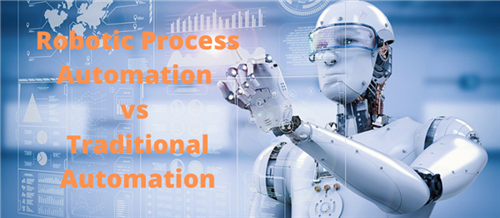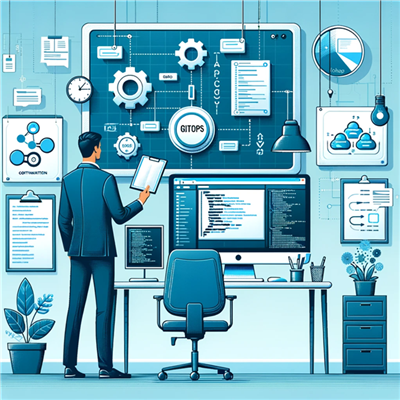The full form of SAP is Systems Applications and Products in Data Processing which by definition is both the name of the company as well as the name of the ERP (Enterprise Resource Planning) software. The five people who are credited to be the founders of the SAP Software are HassoPlattner, DietmarHopp, Claus Wellenreuther,Klaus Tschira and Hans-Werner Hector. It was founded in 1972 in Weinheim, Germany. The system of SAP is consisted of numerous fully integrated modules which has every aspect of the business management covered. In the ERP market, SAP is considered to be the number 1 software which explains the popularity and demand of SAP Certification
SAP ERP Modules
In order to understand the importance and usability of SAP, one has to first understand the meaning of ERP. Although popular by the term ERP, Enterprise Resource Planning is self-explanatory in its full implication which basically indicates the process in which a company or enterprise would manage and integrate the various parts of its business. An information system aimed at ERP Management would integrate various important areas such as human resources, inventory, sales, marketing, planning, service, distribution, purchasing, customer relationship, business intelligence and finance etc.
Based on the manner in which data exchange and communication is managed, enterprise systems can also be decentralized with certain unique features to it but the centralized system is called Enterprise Resource Planning to which the SAP Software belongs. The term ERP should hence indicate a centralized system of management of data and information with two key features essentially:
1.Data is shared with various departments from a central location.
2.Every department will have access to data and information of the other departments.
SAP Software as a type of centralized system itself would exhibit these features. In the market today, SAP is the most popular and most widely used ERP software. SAP Certification is an exam that is based on ERP solutions typically provided by the SAP Software. In taking up a
SAP Course, it is first important to get acquainted with the SAP modules, which can be typically categorized into two tightly coupled segments:
-
Functional Modules
-
Technical Modules
SAP Functional Modules is responsible for client interactions, understanding the requirements of the clients, designing and writing functional documents, support and testing of functional aspects. Whereas the SAP Technical Module Handles the build and is generally the domain of programming which helps the Functional aspect alter the system as per the needs and requirements of the business and clients.
Functional SAP Modules
-
Financial Accounting and Controlling (SAP FICO) – Deals with financial transactions data.
-
Human Resource Management (SAP HRM) – Deals with employee management
-
Production Planning (SAP PP) – Deals with manufacturing and production processes.
-
Material Management (SAP MM) – Deals with management of procurement activity.
-
Quality Management (SAP QM) – Deals with quality management in key business processes.
-
Sales and Distribution (SAP SD) – Deals with business processes involved in selling, shipping and billing of a product.
-
Project System (SAP PS) – Deals with the full cycle of planning and execution of various projects.
-
Plant Maintenance (SAP PM) – Deals with overall maintenance activities.
Technical SAP Modules
-
SAP Basis – Basis stands for Business Application Software Integrated Solution and handles the management of the SAP technical environment and the SAP transport system.
-
SAP Solution Manager (SAP SM) – Provides functionalities that helps operate, implement, support and monitor a company’s SAP solution.
-
Advanced Business Application Programming (SAP ABAP) – Deals with the programming language used for creating the business application support and development.
-
High Performance Analytic Appliance (SAP HANA) – It is an in-memory database structure used for processing high volumes of data in real time.
-
Exchange Infrastructure (SAP XI) – Deals with interactions between different operating systems and applications across both the external and internal networked computer systems
-
Business Infor mation Warehousing (SAP BIW) – Deals with database management tools that support management decision making.
-
SAP NetWeaver – Deals with the technical foundation of the SAP applications which aim at integrating business processes and databases of applications, both SAP and non-SAP, across a heterogeneous software environment.
SAP Training Courses are becoming quite popular in India and one can avail either options of classroom training or virtual training by opting for a regular institute based program or an online program depending on one’s requirement, convenience, and situation. One can opt for their preferred SAP course online and totally make use of the opportunity that the market presents today for individuals trained in SAP ERP. SAP Certification validates the experience and expertise of the SAP professionals and enhances their career opportunities. The cost for different SAP modules varies and places like Delhi, Bangalore and Hyderabad offer variety of options and you can definitely find a program that suits your requirement.
There is a general confusion about which SAP module one should opt for and in this case it helps to follow your interest area before anything else and then academic background, work experience, career inclinations and goals subsequently. However, if there is a lingering doubt about which of these modules are the best ones to opt for then it is best to understand that not every company implements all the SAP modules. Hence, the best modules are surely the most implemented ones leading to maximum job opportunities and the modules that fall in this category are SAP FICO, SAP MM, SAP SD, SAP PP, SAP HRM and for the people with a technical bent there is always SAP Basis or ABAP.
minmin.pngL.jpg)

min.pngM.jpg)
(1).pngM.jpg)




COMMENT